5. Kuch Kuch Hota Hai
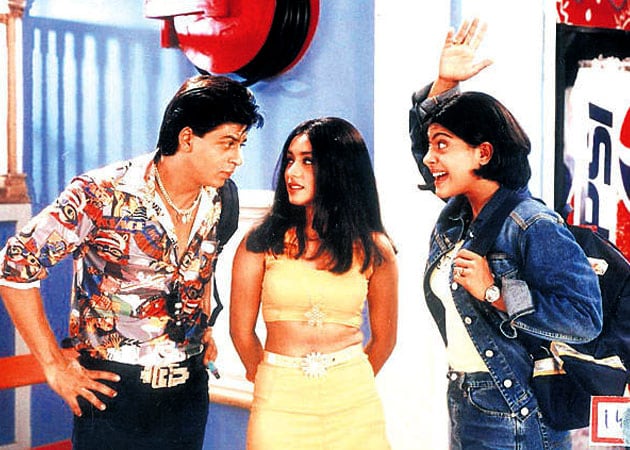
And thus was born the Bollywood phenomenon named Karan Johar, the man who can be charged with ruining film romance for an entire generation. However, that is in no way to undermine this almost classic film, that was no less than a storm when it came out. If you can put aside the occasional misogyny, KKHH is at its core, has an efficacious charm about it and much of it may be owed to the chemistry of the lead pair. Beautiful locations, hummable music, the occasional funny banter, and a seldom rough patch that the protagonists eventually crawl out of, all standard Yash Raj Films tropes are present, tropes that Johar later took and redefined as his own Dharma trademarks. One may argue to the cause of the actual merit of the film and the relative success it got, but that is also true for most 90s flicks. For fans swearing by it, it remains a film they often revisit to date, even more so than the other classic 90s Bollywood romance starring the same lead pair. Certainly the biggest, if not the best success of the year.
4. Hazaar Chaurasi Ki Maa
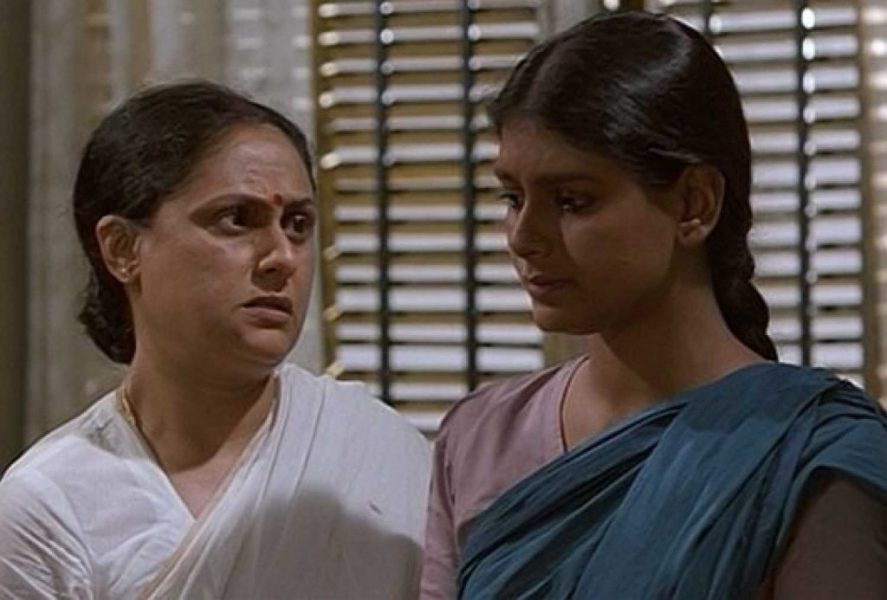
This directorial by Govind Nihalani is an affirmingly positive testament to the influence Bengali literature and culture has over Bollywood, in many ways a beacon of quality too. ‘Hazaar Chaurasi ki Maa’ is a poignantly told story of a mother who sets off in search of finding out her son’s true identity upon hearing of his untimely demise. In that, ‘Hazaar Chaurasi’ is the number allotted to her son’s corpse for identification as her world comes crashing down. Sensitively directed and written for screen from an accomplished novella, the film also deftly handles socio-political issues while not opinionating strongly. Jaya Bachchan shines in a constrained performance as the protagonist and titular character, emoting outwardly only when absolutely needed. Watch out for Anupam Kher and Seema Biswas’ performance too, both stalwarts at their own plays.
3. 1947: Earth
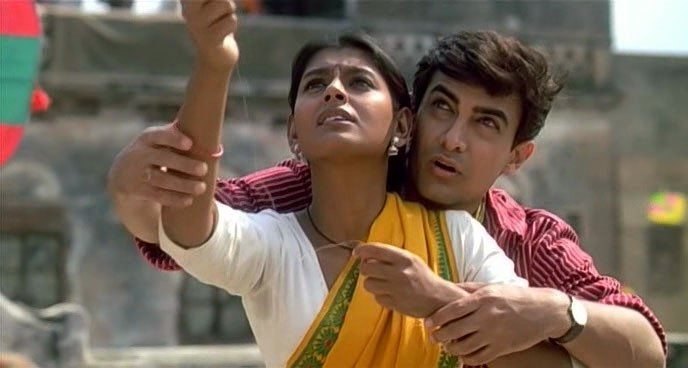
The second film in Deepa Mehta’s acclaimed ‘Elements’ trilogy, ‘Earth’ is not an underrated film per se, for its artistic brilliance was recognized even then. It’s a relatively lesser known one, and one that needs to be more widely seen, despite the film completing two decades since its release this year. A period drama set during India’s independence era, ‘1947’ very well portrays the director’s knack for telling richly detailed dramas with an underlying conflict that is, so to say, very human in nature, something especially reminiscent of her ‘Elements’ trilogy. Aamir Khan is chilling as the “ice candy man”, while Rahul Khanna and Nandita Das breathe new life into their literary counterparts. Here is a film that benefits enormously from a credible literary source, skillful direction, and distinctly subtle performances, while at the same time not being afraid of experimenting in an era defined by mainstream romances and lackluster masala films.
2. Dil Se
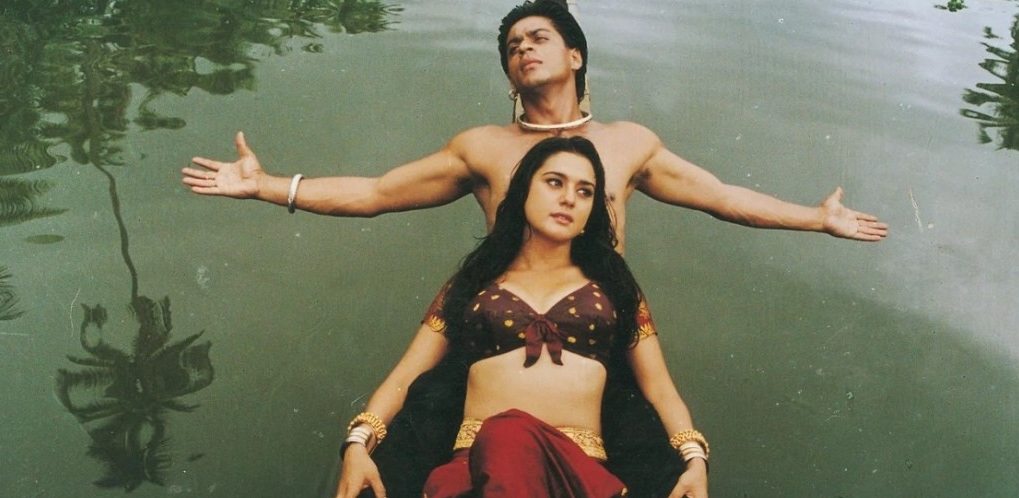
Mani Ratnam’s films have often dealt with the display of love in troubled times, especially his acclaimed “Terror” trilogy of films: the excellent ‘Roja’, ‘Bombay’ and the last of the lot, the quintessentially most Bollywood out of the three, ‘Dil Se’. There is a unmissable sense of melancholy hanging over the film that lends a certain intensity and suspense to the events, and all the more raw power to the central love story against the troubled backdrop of insurgency in Northeast India. Unsurprisingly, the film failed to perform well at the Indian box office, but in the minds of cineastes, remains one of the better films of the year. Added to it, A.R Rahman’s score (as always) is an absolute treat, and all its songs still remain an integral, inseparable part of my playlist even today.
1. Satya
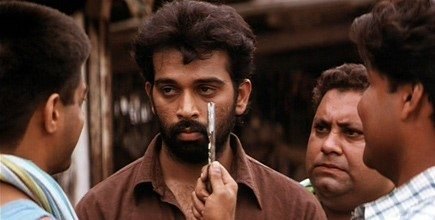
Having grown up in India in the 90s, one only realises what quality cinema means much later, especially during teenage and adulthood years. I was therefore introduced to RGV’s cinema much later than these films were actually released. Unfortunately though, the quality of films being put out by the director in the current decade was subpar to say the least, for me to understand how celebrated a director he is, especially in the crime drama/thriller genre. ‘Satya’ set that right in all possible ways. Forming part of a larger series of films Varma did on the operational organised crime syndicate in the Bombay underworld, ‘Satya’ is raw, realistic, gritty, violent and profanity-laden, much as you would expect a film on the crime infested, gang war-ravaged underworld of Bombay would be. Upon a closer look, the writing is identifiably Kashyap, and you begin to see the inspirations and genealogy. Apart from that, Manoj Bajpai’s Bhiku Matre is in my opinion, one of Indian Cinema’s most memorable characters, a class act in every aspect. ‘Satya’ has a legacy that lives on with the cult success that it is today.
Read More: Bollywood Movies 2003

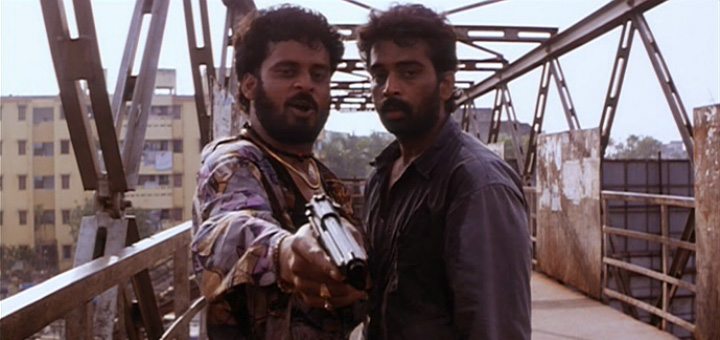
You must be logged in to post a comment.